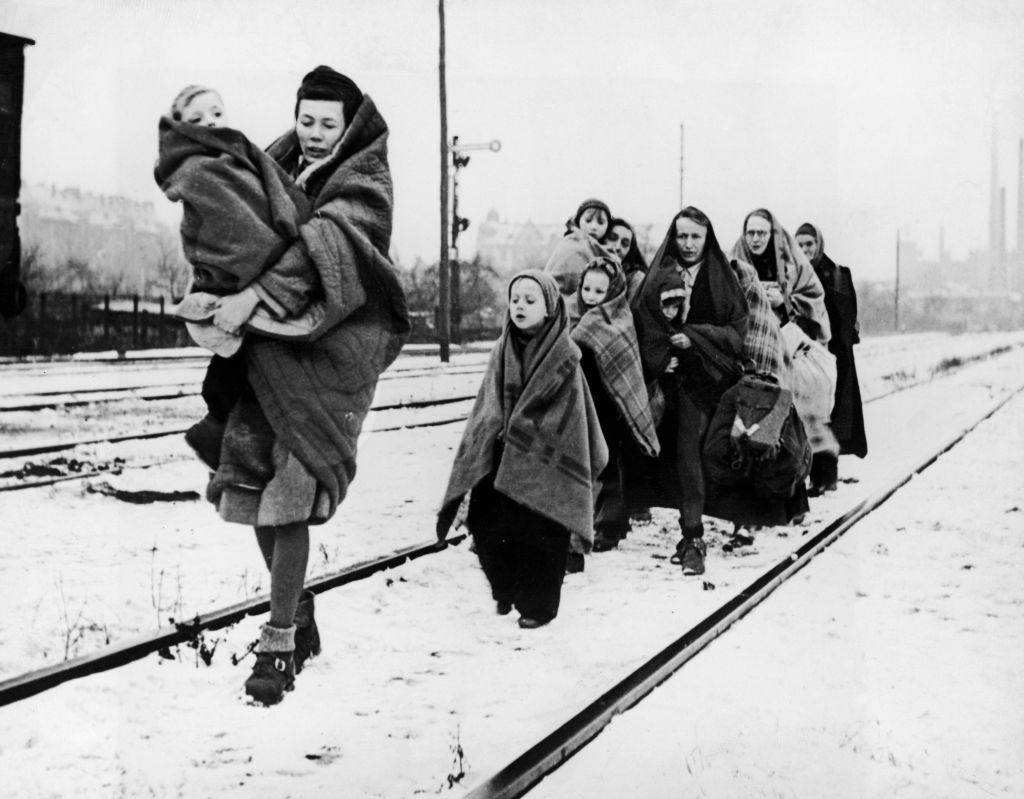Following the end of the Second World War, millions of ethnic Germans were mass deported across Europe, including 185,000 from Hungary, a country which had been allied with Germany up until the last day of the war.
The minutes of the Allied Control Command (ACC) in Europe show that on Jan. 25, 1946, both a member of the U.S. delegation, and one from the Soviet delegation, warned Hungary not to use the ACC’s authority as an excuse for a mass deportation of the country’s ethnic German population.
By this time, the Soviet Union, Yugoslavia, Poland and Czechoslovakia – all on the winning allied side – have already begun the deportation of Germans who were considered enemies. But why did Hungary also decide for deportation despite its alliance with Germany?
Imre Nagy, the communist minister of interior of the Soviet-controlled puppet government in Hungary, submitted to the government the draft of the deportation plan on Dec. 22, 1945, which a majority of the cabinet approved.
At the time, the Hungarian leadership variously used a purported ACC directive and Soviet pressure as the reason for the deportation decision, but historians have yet to find any evidence to substantiate that claim.
There were three main factors that went into the decision to deport the nearly 200,000 Germans from Hungary.
Czechoslovakia, under the rule of Edvard Beneš, had already formulated its plans to deport part of the country’s ethnic Hungarian minority. As a result, the first reason for ethnic German deportations was to make room and find housing for those Hungarians who were deported from Czechoslovakia
The other reason was to distribute the Germans’ land among the impoverished Hungarian population in an attempt to boost the government’s image.
The third reason was to use the ethnic Germans as scapegoats for Hungary’s role in the Second World War.
The deportation decree was published on Jan. 15, 1946. It only contained a hazy definition of the “guilt” of the Germans, but only allowed a maximum 10 percent of the German population to remain.
As a result, between January 1946 and late 1948, Hungary deported a total 185,000 Germans, with 135,000 going to the European territories under U.S. command and 50,000 to those under Soviet command. The state also confiscated three quarters of the 60,400 houses owned by ethnic Germans.
Ethnic Germans faced mass expulsions across Europe
Following Nazi brutality and its policy of total warfare that resulted in the deaths of tens of millions in countries such as Russia, Poland, and Czechoslovakia, many of those who suffered immensely under Nazi Germany’s occupation sought revenge, leading to mass deportations, murder and sexual crimes. Many cases of mass suicide also followed, with Germans scrambling for poison that was being “handed out by pharmacies under the tacit approval of the Nazi Party.”
The German government estimates that 2 million Germans civilians were unnecessarily killed In the closing days of the Second World War across Europe, many of which were the women, children and the elderly.
In addition, an estimated 12 to 14 million Germans lost their homes, with Hungary’s German population representing only a small minority of the overall amount of Germans deported from Eastern European countries.
Some world leaders expressed dismay at the mass suffering of ethnic Germans following the war despite the heinous crimes the Nazis had committed.
British Prime Minister Winston Churchill said the mass expulsion of the Germans amounts to a “tragedy on a prodigious scale.”
Despite Churchill’s dismay, Western powers had already agreed to the mass expulsion of Germans from areas across Eastern Europe before the war ended. When brutality against the defeated Germans ensued on a mass scale, there was little appetite to shelter the German population given the horrors of Nazi Germany’s policy in the east of Europe, such as the near total destruction of Warsaw following the city’s 1944 uprising.
Hungary commemorates deported Germans
Some countries in Eastern Europe have shown some signs of telling the story behind what happened to German populations following the aftermath of the war. For example, in 2010, Czech television ran unearthed documentary footage of 40 German civilians being executed following the end of the war, which was previously considered a taboo topic that would have never been televised decades before.
However, Hungary appears to have taken the most steps to recognize the deported Germans from its territory, with the Hungarian government implementing a number of policies to commemorate the deportees in recent times.
In 2013, Hungary’s parliament passed a law marking Jan. 19 as the “Memorial Day of the Deportations of Ethnic Germans from Hungary”, which was the same day in 1945 when deportations first began.
The government has also created memorials to the Germans and had government officials speak on their behalf at ceremonies.
According to Hungarian-daily MTI, Hungary’s state secretary for church, minority and civil society relations, Miklos Soltész, said while speaking at a commemoration ceremony that in Hungary’s 1941 census, approximately 500,000 Hungarians had German origins, which by 1949 had dropped to just 2,600.
He continued by saying that the German population suffered along with many millions more across Europe under the totalitarian regimes of Nazism and communism.
According to Soltész, in order to ensure minority rights are upheld in the country and heal the crimes of the past, the Hungarian government implemented a policy allowing minorities to run schools and institutions. He added that the minority rights policy has led to 186,000 Hungarian citizens self-identifying as Germans in the latest census, which he views as a success.
In 2013 Hungary’s parliament voted to declare January 19 the memorial day of the deportation of ethnic Germans from Hungary, as it was on this day in 1946 that the deportations began in Budaörs.
Read more at: https://dailynewshungary.com/ethnic-germans-deported-after-ww2-commemorated/
Read more at: https://dailynewshungary.com/ethnic-germans-deported-after-ww2-commemorated/
Read more at: https://dailynewshungary.com/ethnic-germans-deported-after-ww2-commemorate
Title image: German deportees at the end of World War II.




